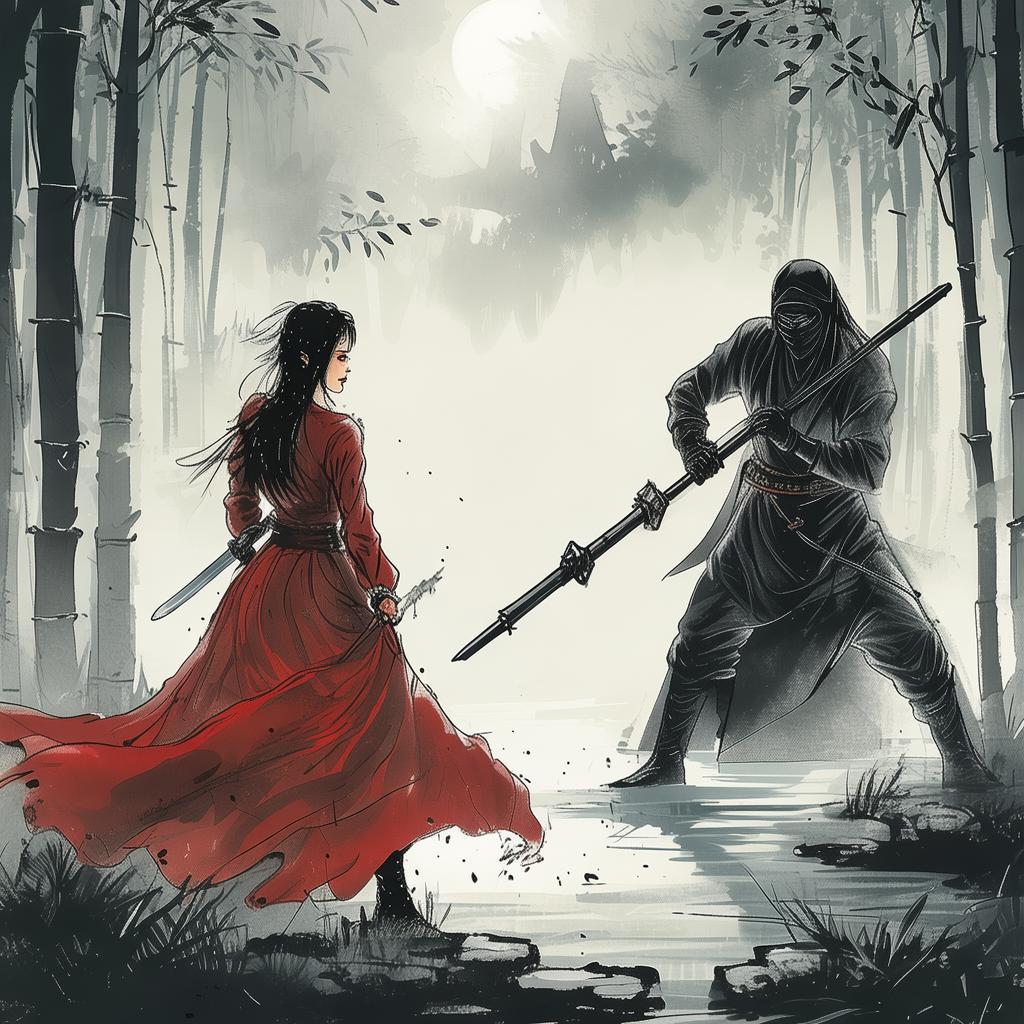Shadow of the Tortured Fist: The Quest for Enlightenment
The dawn broke over the ancient mountain peak, casting a golden hue over the misty landscape. Below, the village of Hualing lay in peaceful slumber, unaware of the turmoil that brewed within the mind of its most revered martial artist, Wu Qing. Wu Qing stood at the edge of the cliff, his eyes fixed on the horizon, a single thought consuming him: "Am I truly free, or am I merely a prisoner of my own creation?"
The Zen of the Tortured A Self-Enslaved Martial Art's Quest had been his guide for years, a grimoire of discipline and self-mortification that he had believed to be the key to ultimate mastery. But as the years passed, the questions multiplied. Was the path of self-torture truly the path to enlightenment, or was it merely a form of self-enslavement?
Wu Qing's story began not in the serene mountains, but in the bustling streets of the capital city, where he was born into a family of martial artists. From a young age, he displayed a natural talent for combat, quickly outpacing his peers. It was during his adolescence that he encountered the Zen of the Tortured, a text so esoteric that even the most seasoned masters of the martial arts could scarce comprehend its teachings.
The Zen spoke of a path not of physical prowess, but of mental fortitude. It taught that true mastery lay not in the ability to defeat an enemy, but in the ability to defeat one's own desires and fears. Wu Qing took these words to heart, and he began his quest. He subjected himself to rigorous training, pushing his body and mind to the brink of endurance.
One of the most profound teachings of the Zen was the concept of self-torture. Wu Qing took this to an extreme, subjecting himself to physical pain and mental distress, believing that by enduring such trials, he could transcend his own limitations. He starved himself, slept on the cold ground, and even fought against imaginary foes, all in the name of enlightenment.
Yet, as the years passed, Wu Qing found himself growing increasingly weary. The path of self-torture had become a burden, a yoke that seemed to weigh heavier with each step. He began to question the very essence of the Zen, wondering if he had misunderstood its true purpose.
It was during a particularly intense period of self-torture that Wu Qing had a revelation. He realized that the path of self-torture was not about enduring pain, but about embracing it. It was not about forcing his body and mind to conform to some ideal, but about learning to accept the chaos within.
With this newfound understanding, Wu Qing decided to take a different approach. He began to explore the world beyond the confines of his training, seeking out those who had mastered the art of living in the moment. He traveled to remote villages, met with wise sages, and even fought with other martial artists, each encounter teaching him something new about himself and the world around him.

As Wu Qing's journey continued, he found that the true essence of the Zen was not about self-torture, but about self-discovery. He learned to embrace his fears, to cherish his desires, and to accept the impermanence of all things. He came to understand that enlightenment was not a destination, but a continuous process of growth and learning.
One day, as Wu Qing stood on the cliff overlooking Hualing, he realized that the key to enlightenment was not found in the books or the training, but in the very act of living. He had spent years seeking answers in the external world, but it was only through facing the truth within that he had found the peace he had been searching for.
With a newfound sense of clarity, Wu Qing descended from the mountain, his heart filled with gratitude for the journey that had brought him to this moment. He returned to the village, not as a master of martial arts, but as a guide, a teacher who had learned that the path to enlightenment was a personal one, unique to each individual.
The villagers welcomed him back with open arms, and Wu Qing spent the remainder of his days sharing his wisdom, teaching others to embrace life's challenges and to find enlightenment within themselves. His story became a legend, a testament to the power of self-discovery and the enduring quest for enlightenment.
In the end, Wu Qing realized that the true essence of the Zen of the Tortured was not about self-torture, but about self-liberation. It was about finding the courage to face one's inner demons and to embrace the chaos of life with an open heart and a clear mind. And in this realization, Wu Qing found true freedom, the kind that can only be achieved through the journey of a lifetime.
✨ Original Statement ✨
All articles published on this website (including but not limited to text, images, videos, and other content) are original or authorized for reposting and are protected by relevant laws. Without the explicit written permission of this website, no individual or organization may copy, modify, repost, or use the content for commercial purposes.
If you need to quote or cooperate, please contact this site for authorization. We reserve the right to pursue legal responsibility for any unauthorized use.
Hereby declared.









